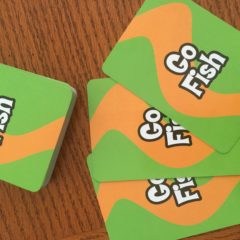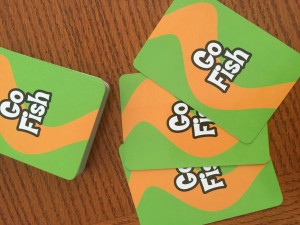client engagement
The Power of One Word That Increases the Emotional Response to Your Dental Marketing Content
 I underestimated how much a simple, handwritten note could encourage someone my grandson’s age. It’s the same power that intentional, personal content has over generic, every-person content that’s common in marketing, including dental marketing.
I underestimated how much a simple, handwritten note could encourage someone my grandson’s age. It’s the same power that intentional, personal content has over generic, every-person content that’s common in marketing, including dental marketing.
The note to our six year-old grandson arrived in a hand addressed envelope. It was from one of his children’s ministry leaders at our local church.
The message was simple. It affirmed his consistent presence there weekly, acknowledged his growing leadership, and offered some encouragement to his ongoing spiritual growth.
When I read the note to him, his face immediately revealed the power of personal words. His response – “Read it again, Gpa…,” something he asked me to do not once, but two more times before tucking it back into the envelope with a smile.
“You” trumps “We” (and other generic, impersonal content).
Here’s what I know from experience. Had the note been a computer generated, typewritten “Hey, <FIRSTNAME>…” form letter I don’t believe it would have made the impact it did on our grandson.
Sure, there’s a time and place for template reply mail. But I must admit, in this highly engaged, data-driven world we live (and market) in, that brand of content is received with increasing feelings of, “Oh, another form-letter…” [tossed in trashcan alongside other junk mail].
Communicating with a specific person in a way that’s impersonal, collective (just one of the crowd) fails to make the necessary, emotional connection that compels a profitable response to your content.
When your website copy, marketing promotions, email marketing series’ – you name it – speaks to more than “One” person it misses it’s intended goal.
You are hard-wired to respond emotionally when communication is aimed directly at you…personally! If you even smell that the message is mass produced, I get it, you’re out and on to something else.
How many life-changing products and services are lost on generic blasts that feel as if it’s intended for anyone who happens to pick it up? That all changes when it feels like the words are for “your-eyes-and-ears-only.”
How to Use the Power of “You” to Increase the Emotional Response to Your Dental Marketing Content Online or Offline
Make it “personal.”
Picture yourself having a conversation with one person. When you write content, speak into a microphone on a podcast, or look into a camera for a YouTube, Periscope, or Blab broadcast imagine there’s one person in front of you.
Eye-to-eye toned conversation will reach out from your words and make an emotional connection. And that’s the kind of connection that compels your reader/listener/viewer to take action as result of your content.
- Read everything about your “audience” until a clear, individual persona comes into focus.
- Believe that what you are sharing via your content will change that one person’s life in some way.
- Think like that one person and talk to yourself as if you are them, hearing what you’re communicating. How does it sound? Would you do what you are asking them to do? Etc.
Talk don’t tell.
The power of “You” focused communication is it’s conversational voice or tone. Are you motivated as much by technical, overly-hyped verbiage as you are by clear, down-to-earth, let’s have a chat themed conversation? I think not.
- Write like you talk. Simply and clearly speak to your reader, listener, or viewer as if you are one-on-one…face-to-face over a cup of coffee.
- Speak “with” not “at” or “to” your reader. They can sense if you’re not personally interested in THEM the moment you act like you’re trying to impress or “sell.”
Get intimate.
Think of intimacy as being up-close-and-personal. I’m not saying be a “close-talker” (if you’re a Seinfeld fan you’ll remember that classic episode).
I’m referring to the shift from generic, crowd-centered, mass-marketed marketing hype to assuring your reader/listener/viewer that you’re into THEM. Their needs, wants, desires, emotional-drivers, pain-points, etc.
- Find your intimate voice. This starts with using the word “You” as much as possible throughout every piece of content you create.
- Be so “You” intentional that your reader/listener/viewer considers you their new “best-friend.” Intimacy doesn’t have to be weird or touchy-feely. It’s a connection.
- Put yourself in their “shoes.” This includes admitting your understanding of their needs, wants, and desires as you admit your “weakness” when appropriate. See their battles and stand in the fray with them.
That note my grandson received… It’s prominently posted on the wall of his bedroom.
The same emotional response applies to the person consuming your content. Keep it personal.
3 Insights That Protect You from Being One-of-Those Dental Emailers

You know “that person you don’t want to receive email from…?” It’s the eye-roll inducing marketing cousin of Cecily Strong’s SNL (Saturday Night Live) sketch, “the girl you wish you hadn’t started a conversation with…” character.
A friend and colleague of mine received one of THOSE emails. And the take-aways are beneficial if you want to avoid being “the dental emailer whose list you wish you hadn’t added your name to.”
I could make this short and sweet by saying the fix is easy. “Unsubscribe!”
You and your readers have more power than you realize. So, you should think long and hard about the content you send (more on that in a moment).
Something amazed me when I worked at a dental practice. Patients would often whine about the email we sent about this or that.
They would often invest more time voicing their dissatisfaction for whatever reason than reading, deleting, or perish the thought, unsubscribing.
As Zig Ziglar would say, “Some people are born in the objective case in the kick-a-tive mood.” Translation: they’ll whine about anything.
Yet do they have a valid point when it comes to the email you send that invades their space (permission granted, of course)? And are you giving them a reason not to boot you to the curb via a quick click of the unsubscribe link?
Consider my friend and colleague’s experience your wake up call!
Here’s the subject line of the email she received:
“Hey, [FIRSTNAME], what’s wrong with your blog?”
I’m not kidding, that’s it.
First, the subject line is an attempt at being “cute.”
It typically doesn’t work because we’re accustomed to it…like we are hype.
When hype leads the way. I’m out and so are most readers.
I avoid people who come off this way. And I certainly don’t waste my time reading emails or any marketing resources that start a conversation with such a tone.
Which brings me to my second point.
It’s an attempt at being conversational, but it misses a vital element of that process.
I could say that to my friend/colleague in a subject line to her without question. Why?
We have a relationship. And that’s my point.
Evaluate the relational quality of your list.
- Are you chummy? (Can you talk about anything relevant with them?)
- Do they enjoy hearing from you?
- Did they ask to hear from you?
- Does the information or conversation you share with them help them with something they need?
And this is HUGE…
- Can you continue the conversation via email at any time, about any subject, and they look forward to hearing what you have to say?
Before you even get a second chance, you must understand this.
The content of your email communications are irrelevant if you haven’t earned the right to be heard.
I subscribe to a number of email lists. Confession time: I don’t read all of them.
In fact, since we’re cleaning the slate here – I occasionally delete some of them without even opening them.
The point?
Timing matters.
Not all email subjects – even from trusted, valued sources – hit my hot-button on a given day. You won’t always bat a thousand when you send an email to your list.
But you increase your batting average when they find your content helpful and useful more than they find it hype-ful (how’s that for a word?).
Assure that your email communications to your dental patient, client, or house-list are helpful not hype-ful!
- Share an oral health trend instead of the latest triple-your-savings offer of the month.
- Lead with a benefit – something that improves their life, health, etc.
- Be generous with information that serves them with no-strings-attached (e.g. “Like” our Facebook page to enter our contest, Refer a friend or family member for 10% off your next treatment, etc). Email your list just-because without an “angle.”
Trust still translates via email.
Scammers, spammers, and hyped up marketers have peed-in-the-pool long enough. It’s time to take back the valuable online territory they’ve fouled up.
It should go without saying that you’re trustworthy. And your email content is simply another way your character shines.
Patients, clients, and those you do business with will actually anticipate seeing you in their inbox if you’re a source of useful, beneficial content.
And these days it’s really about the information.
Profit follows trust.









